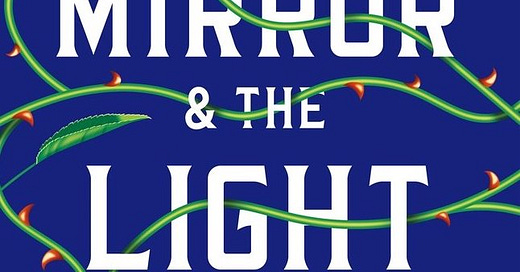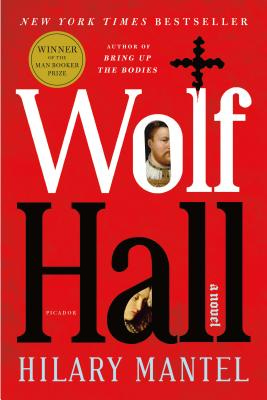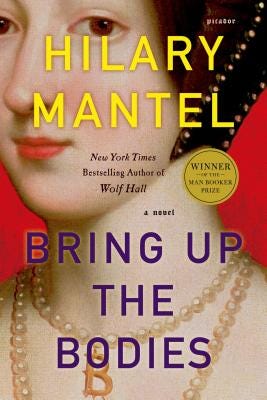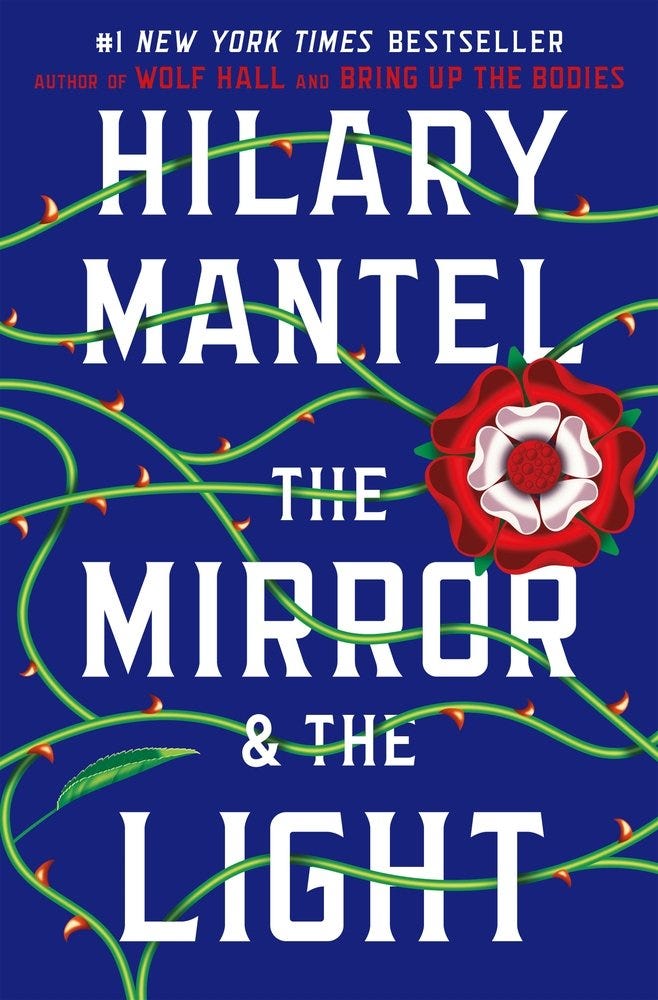Ambition, Desire, Death: It's The Wolf Hall Trilogy!
When you want non-fussy historical fiction (WSIR #7)
First, an unavoidable truth: there are entirely too many Thomases in the Wolf Hall trilogy about the rise and fall of Thomas Cromwell, advisor to Henry VIII.
Is this a facile observation about an incredible trio of novels? I acknowledge this, yes. Is it an unfair complaint since these were actual real people in English history and apparently the Bible, plus a terminal lack of imagination, resulted in everyone having the same four names? Also probably yes.
And yet I feel the need to prepare you for this because especially at first it can make the Wolf Hall trilogy a little hard-going. Which Thomas is talking to the king? WHO is the “he” in question here? Why am I reading this again?
But hang in there! Because if you love historical fiction? If you’re interested in a sweeping saga that’s intellectually substantive and beautifully written? If you are curious about the historical COOs slash enablers of life, death and taxes? Or if at the (hopeful) end of a Trump presidency you need yet another reminder of Icarus or the consequences of getting high on your own supply? This series is so good.
The entire series revolves around power (who has it, and when, and how do they get it, and how do they lose it), but at the same time, each of the books stands alone with its own central themes and style.
Book one, Wolf Hall (2009), is about the ambitious rise of Thomas Cromwell from an penniless son of an abusive blackmith to become a trusted advisor to Henry VIII as the king is trying to end his current marriage/ lack of a male heir and marry Anne Boleyn. As Cromwell is cunning and outsmarting everyone, one step ahead, indispensable, and yet always seen as inferior to noble peers, this book feels a bit like a chess game, constantly thinking one step ahead.
Bring Up the Bodies (2012) - the second and my favorite of the series - centers near the height of Cromwell’s influence, during the Boleyn marriage (and spoiler alert? eventual beheading). It’s the shortest of the three and not coincidentally the most propulsively written with this steady drumbeat of desire as we hurtle toward Anne Boleyn’s inevitable end and how Cromwell orchestrates the matter. It feels like this book is all action and verb, cat-and-mouse.
The first two in this trilogy were nominated for many awards, and for years I’ve been thinking “WHERE IS THAT FINAL WOLF HALL BOOK FOR CRYING OUT LOUD”. Interestingly, when The Mirror and the Light came out this year, it made very few “best of” year end lists or awards shortlists. I can imagine that in part, eight years after Bring Up the Bodies, the third entry about a powerful historical man is not notable.
But I wonder if it’s also because this is a very different read than the other two. As befits the aging and downfall of Cromwell, the book is more reflective, more surreal; the man is figuratively and literally visited by his ghosts. It also took its time - usually happily so but it was occasionally a little bit of a trudge to read about yet another rebel skirmish in the north. Do I look like a military tactician?
But overall, a beautiful end and a powerful trilogy. The themes and situations feel startlingly contemporary. The dialogue is dryly witty and moving. The details are meticulous. And especially now that you can read them in relative succession, I think you’ll be transported!
“Yes, I also loved this series!” <== is that you? Let me know in the comments!
“Not for me, so many Thomases” <== also let me know in the comments so I don’t feel quite as feeble-minded of a reader.
“But have you seen the MINISERIES?” <== NO, should I watch it?






